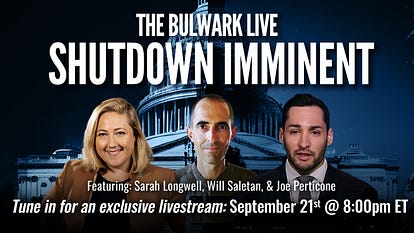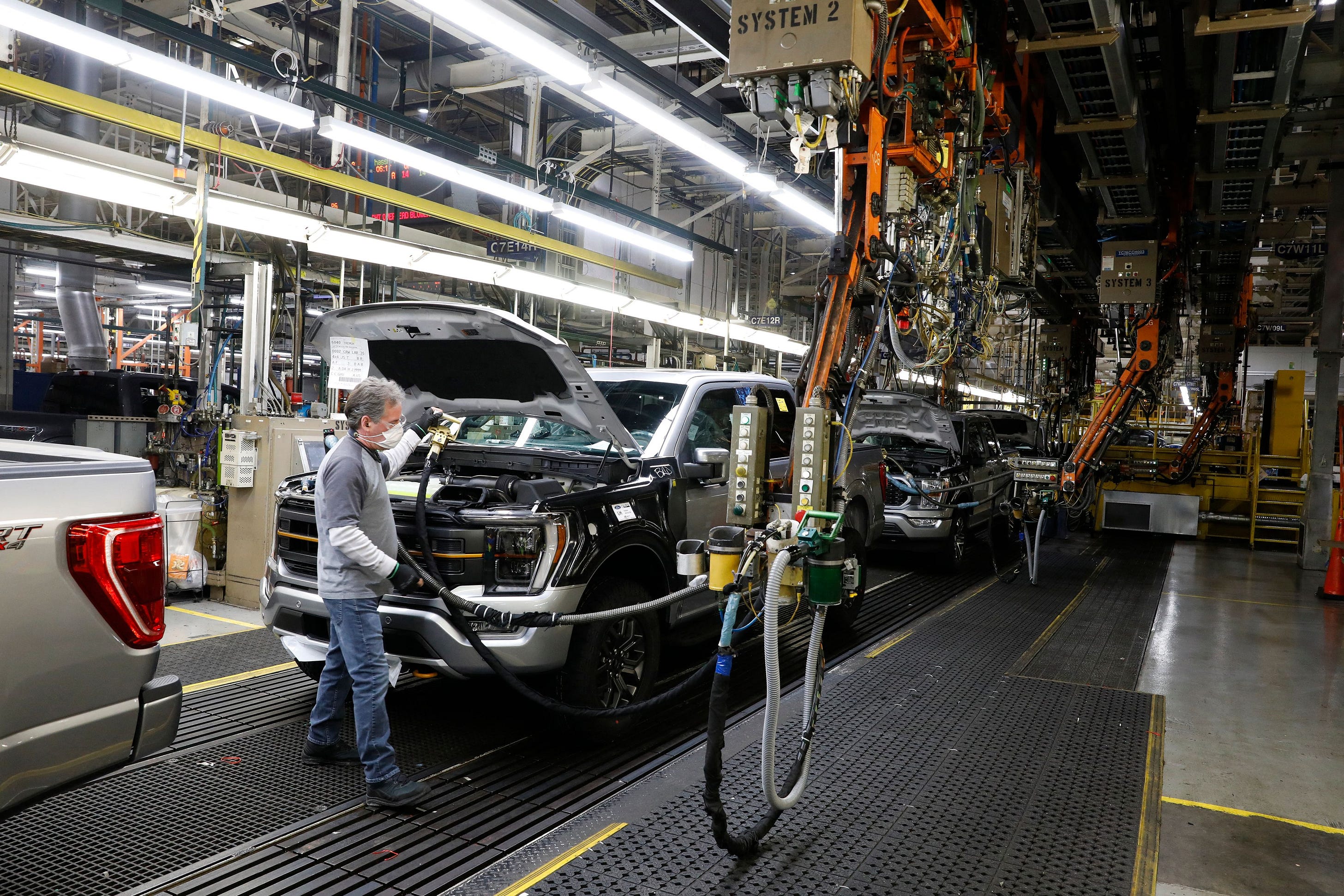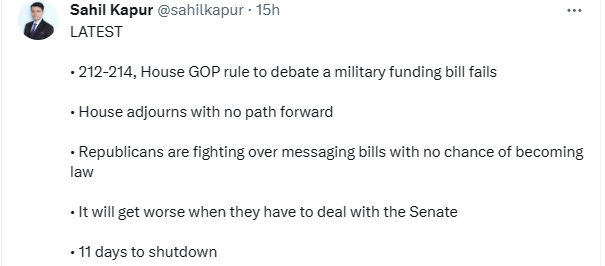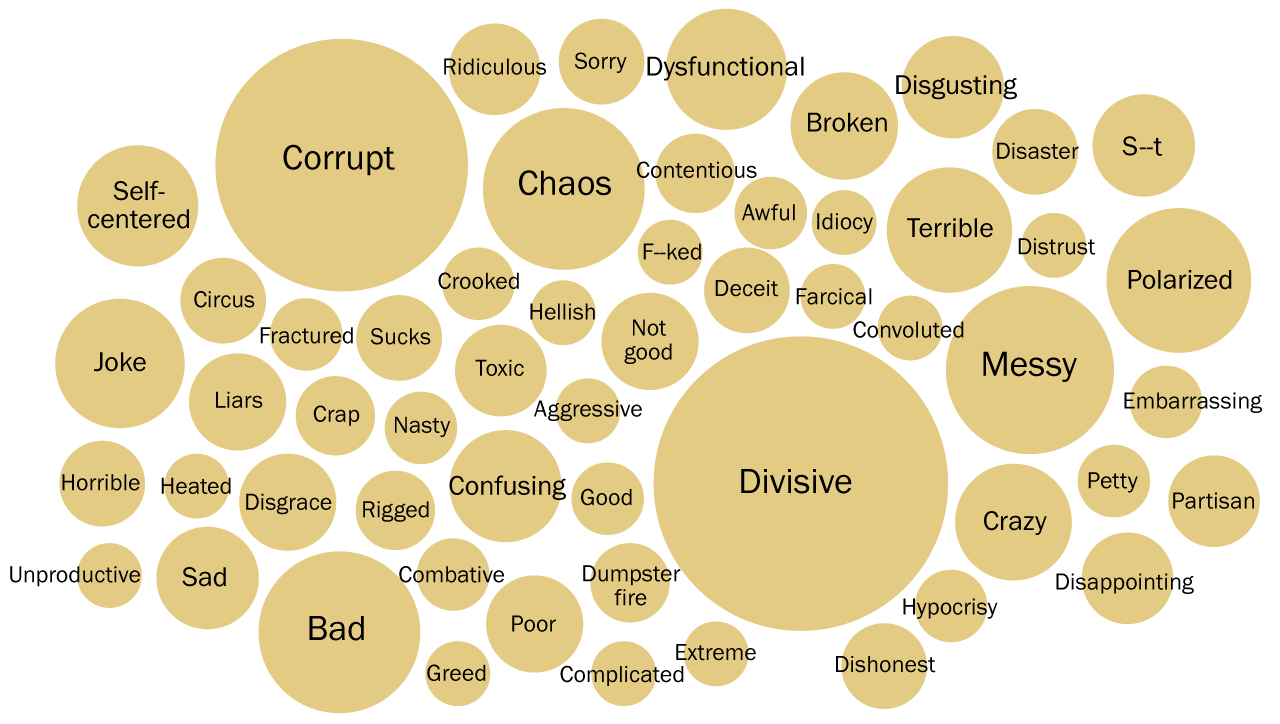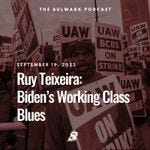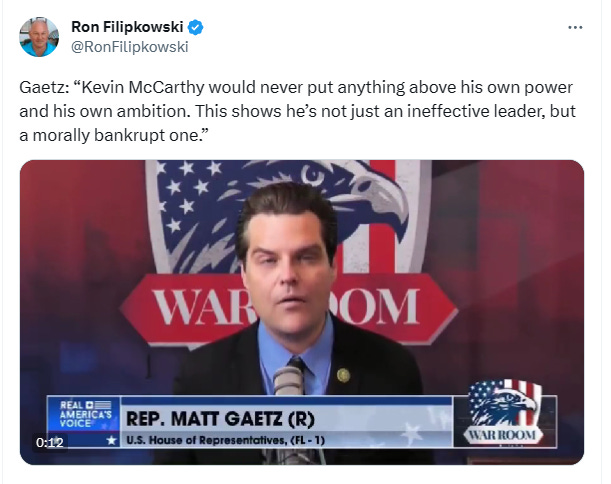Tomorrow night: Sarah, Will and Joe will discuss a possible government shutdown starting at 8pm ET on Thursday Night Bulwark. Plus, Sarah will preview the return of The Focus Group podcast—returning this Saturday. Upgrade to Bulwark+ today and then join us for Thursday Night Bulwark. Your membership includes access to all our newsletters, livestreams, and ad-free and member-only podcasts. Catching up:
In an open-ended question, people were asked: “What one word or phrase would you use to describe politics in the U.S. these days?” Note: Circle size indicates relative frequency of a word in responses to an open-ended question. Words with the same root are combined (e.g., “divisive,” “division”). Top 56 words shown.
Happy Wednesday. Our Culture of ContemptBack in 2019, the estimable Arthur Brooks noted that critics and pundits “often say that our problem in America today is incivility or intolerance.” Brooks begged to differ. The real problem is far worse: Contempt, which he described as “a noxious brew of anger and disgust.”
To be sure, the temptation of disdain is powerful; and let’s be honest, contempt is often earned in our deplorable political culture. Contemptible people do, indeed, deserve contempt, and I for one, certainly intend to keep serving it up in generous doses. But Brooks, who is a far better man than I am, also warned about the dangers of a more global contempt for people who might have different perspectives and opinions. “Contempt,” he notes, “makes political compromise and progress impossible.” And it shuts down any possibility of dialogue. Wrote Brooks:
** I was reminded of Brooks’s piece when I was talking with The Liberal Patriot’s Ruy Teixeira on yesterday’s podcast. As, usual, the veteran progressive analyst offered up some tough love for Democrats who seem puzzled about why they might be losing working class voters. And, as usual, we were reminded how many Democrats just don’t want to hear it. But denialism is not really a sound political strategy going into 2024 — and neither is a politics based on contempt. You know what I mean here: the dismissal of working-class voters as ignorant, irrational bigots, who really don’t understand the economy or even their own self-interest. Okay, that does explain some of them; but, as Ruy points out, the voters-are-too-dumb-to-understand mantra is (1) hardly a ringing endorsement of democracy, and (2) a questionable electoral strategy for the party of FDR. Simply assuming that working-class reactions to social and economic conditions are irrational seems like a strategy for widening the disconnect between elites and the voters desperately needed to block a second Trump term. It also dismisses a wide swath of humanity as unworthy of respect or attention. You can listen to the whole thing here. ** Ruy argues that that it’s important for Democrats to understand just how poorly the Biden economy has played with working-class voters so far: A recent Quinnipiac poll found Biden with a 25% approval on the economy among white working-class (non-college) voters vs. 52% approval on the economy among white college grad voters. And white working class voters are overwhelmingly pessimistic about the national economy (75%), and are pessimistic (82%) about the cost of goods and services, a recent CBS News poll found. Well, ouch. Teixeira notes that views on the Biden economy may also reflect the belief among working class voters that, “Democrats don’t much like them and their uneducated uncouth manner of speaking and thinking.”
** In a recent essay, Teixeira cites recent reporting by Ron Brownstein to explain the chasm in the outlook on the economy between working class and college grads:
While Biden and his allies point to an inflation slowdown, prices are not returning to their pre-Covid levels. Higher interest rates are also a problem.
Writes Teixeira:
Recent economic news is not helping. Inflation went back up in August, as did gas prices. Meanwhile, the latest income data from the Census Bureau “show continued decline in median household income in the first two years of the Biden administration, leaving it 4.7 percent lower than its pre-pandemic peak.” “Taking all this into account,” Teixeira writes, “it should not be too surprising that education polarization is stark in recent horse race polling between Biden and Trump. In a new CNN poll, Biden loses the working class by 14 points to Trump, while carrying college-educated voters by 18 points. That compares to Biden’s 2020 loss to Trump of ‘only’ four points among working-class voters.” As Brownstein pointed out in that piece for CNN, “middle class Joe” may end up relying on upscale voters more than he did in 2020. Notes Teixeira: “Those are voters who are less sour on the economy and more susceptible to appeals around abortion, democracy, and Trump’s boorish personality.” That may work. “But besides being risky, one has to wonder what kind of party the Democrats are becoming. Is this really the party they want to be, where the views, priorities, and values of the educated take precedence?” He writes:
** Which brings us to the UAW strike — and its political fallout. As The Dispatch notes, the Biden administration is pumping billions of dollars into subsidies and tax incentives to ease the transition from combustion engines to electric vehicles.
In his newsletter yesterday, JVL examined some of the cognitive dissonance surrounding the issue. “The actual threat to these union autoworkers isn’t China,” he writes, “but the Republican governments in Sun Belt states, which have worked hard to weaken unions in order to make themselves attractive to big business.” And yet, he cites Politico’s reporting, indicating that some actual UAW members seem to be aligned . . . with Trump. He writes: “Three anecdotes aren’t data. But . . . man. We are deep into What’s the Matter with Kansas? territory.”
JVL’s analysis is fair and thorough, and you should read the whole thing. But I beg to differ, at least somewhat. Obviously, I agree that we live in irrational times. The GOP has fully embraced the crazy and it seems mind-bending that working-class union members would look at the golden-toilet-owning Orange faux-billionaire as an avatar of populism. This is admittedly frustrating. But is it a sign that all of their objections and concerns are irrational? Is it really irrational that “every union member” is not embracing the Democratic EV/clean-energy agenda? Is it really irrational that working class voters worry about an economy that is squeezing their families’ budgets and threatening their jobs? And are drifting from their partisan loyalties? Maybe, just maybe, this is a good time take seriously the concerns of voters who used to be part of the Democratic coalition? Ruy and I talked about that yesterday:
Quick HitsThe Age of NarcissismBrilliant piece in today’s Bulwark from my colleague, Mona Charen:
For Bulwark+ Members, we also discussed this on our weekly podcast: “Our Malignant Narcissist Overlords.” Cheap ShotsOddly enough, he’s not wrong. You're currently a free subscriber to Morning Shots. For the full experience, upgrade your subscription. |


